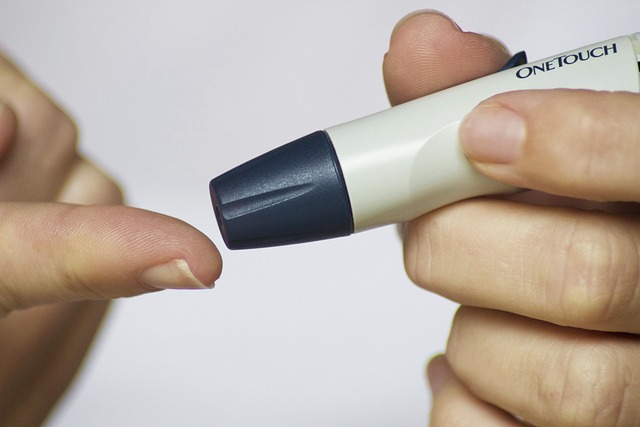In the UK, a Vitamin B12 blood test serves as a simple yet effective screening tool for men's hormonal health, including testosterone levels. Imbalances can lead to various issues like decreased muscle mass, fatigue, and reduced libido. As men age, maintaining optimal hormone levels becomes vital for overall well-being. The test involves drawing a small blood sample to check B12 concentration and hemoglobin binding, with results compared against reference ranges (140-900 pg/mL) to identify potential health issues affecting testosterone production. Healthcare professionals use these insights to guide treatment plans and recommend dietary adjustments or supplements if needed.
“Testosterone level testing is a valuable tool for assessing male health, especially as men age. Understanding testosterone’s crucial role in various bodily functions is essential. This article guides you through the process and highlights key indicators. We explore ‘when to consider’ such tests, focusing on symptoms like decreased energy, muscle mass loss, and libido changes. Furthermore, we delve into the UK Vitamin B12 blood test as a means of interpreting testosterone levels, emphasizing its significance in overall health assessment.”
- Understanding Testosterone and Its Role in Male Health
- When to Consider Testosterone Level Testing
- The Process and Interpretation of UK Vitamin B12 Blood Tests for Testosterone
Understanding Testosterone and Its Role in Male Health
Testosterone is a key hormone in men, playing a pivotal role in various aspects of health and wellbeing. Secreted primarily by the testes, it performs numerous functions, including promoting muscle mass and strength, bone density, red blood cell production, and libido. This hormone is also responsible for deepening vocal cords, supporting prostate health, and maintaining overall energy levels. Understanding testosterone’s complex role in male physiology is crucial when considering health assessments, especially as imbalances can lead to significant issues.
In the UK, a Vitamin B12 blood test often serves as an initial screening tool for assessing hormonal health, including testosterone levels. This is because B12 deficiency has been linked to low testosterone, and both are associated with several chronic conditions. By analysing blood samples, healthcare professionals can identify potential hormone imbalances, enabling timely interventions to support overall male health and wellbeing.
When to Consider Testosterone Level Testing
If you’re a man experiencing symptoms that could indicate low testosterone levels, it might be time to consider getting tested. While low T is often associated with age-related decline, it can also signal underlying health issues that require attention. In the UK, where access to healthcare is widely available, men should not hesitate to consult their GP if they suspect a problem.
Symptoms like decreased muscle mass, fatigue, reduced libido, and changes in bone density could point to low testosterone. Moreover, a simple blood test for Vitamin B12 levels, often included in routine health checks, can provide valuable insights into overall hormonal balance. As men age, maintaining optimal hormone levels becomes increasingly important for overall well-being and quality of life.
The Process and Interpretation of UK Vitamin B12 Blood Tests for Testosterone
In the UK, a Vitamin B12 blood test can provide valuable insights into a man’s testosterone levels and overall health. The process involves drawing a small sample of blood, typically from a vein in the arm, which is then sent to a laboratory for analysis. The test measures the concentration of vitamin B12 in the blood, as well as its binding to hemoglobin, offering a comprehensive view of nutritional status.
Interpretation of results depends on reference ranges established by laboratories. Normal levels of vitamin B12 are generally considered to be between 140-900 pg/mL (picograms per milliliter). Deficiencies may indicate underlying health issues that can impact testosterone production. For instance, low B12 levels could suggest pernicious anemia or malnutrition, both of which have been linked to hormonal imbalances including reduced testosterone. Healthcare professionals use these test results to guide treatment plans and recommend appropriate dietary adjustments or supplements if necessary.
Testosterone level testing, often involving UK Vitamin B12 blood tests, is a valuable tool in managing male health issues. By understanding testosterone’s role and knowing when to test, individuals can take proactive steps towards optimal well-being. The process is straightforward, and accurate interpretation of results can lead to effective treatments, ensuring men can navigate their health journey with confidence.
